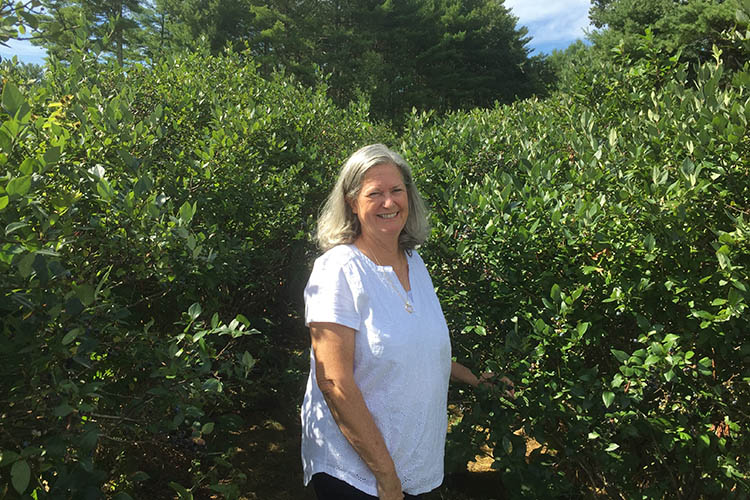In this Ask the Expert, Ingrid Fratantuono, Agricultural Program Specialist for the USDA Farm Service Agency (FSA) State Office in Rhode Island, answers a few questions about disaster assistance for eligible tree growers. Ingrid is responsible for overseeing disaster assistance programs for farmers in Rhode Island.
Ingrid has worked on disaster assistance programs at the county, state, and national levels. As an orchardist, she understands how natural disasters can affect her blueberry bushes. Ingrid owns and operates a family farm and spends her free time tending to her farm and selling her produce at local farmers markets.

Is there assistance available for tree and nursery growers who suffer losses?
FSA has a disaster assistance program that can help orchardists and nursery tree growers recover from natural disasters. If your operation was hit by a natural disaster, then you can apply for assistance through the Tree Assistance Program (TAP). This program provides financial assistance to help you replant or rehabilitate eligible trees, bushes, and vines.
To be eligible, you must have suffered tree deaths exceeding 15 percent of normal mortality loss. Those losses had to result from an eligible natural disaster event that happened in a calendar year (or loss period in a case of plant disease).
What types of trees, bushes, and vines are eligible?
Trees, bushes, and vines are considered eligible for TAP if they produce an annual commercial crop. Commercial nursery trees include ornamental, fruit, nut, and Christmas trees. Trees used for pulp or timber are not eligible.
What are examples of eligible natural disasters?
Natural disasters are disasters that can cause damage or loss of life. These include, but are not limited to, drought, excessive rain and wind damage, earthquake, fire, flood, freeze, hail, high winds, hurricane, insect infestation, lightning, plant disease, straight line winds, tornadoes, and vog, which results from volcanic emissions.
Following a freeze in February 2017, Newport Vineyards in Rhode Island lost their grape vines and applied for TAP, which helped them replant over 714 grape vines.
Another operation, Pippin Orchards, was able to use TAP to replant 166 peach trees after experiencing losses in June 2019 due to a hailstorm.
There’s a lot of risk when it comes to producing trees, bushes, and vines, especially when you consider how long it takes these types of crops to start producing after they are planted. TAP assistance is a valuable resource when it comes to disaster recovery.
Is there a crop acreage limit?
For losses that occurred after January 1, 2017, growers can receive TAP payments on up to 1,000 acres that were planted to trees, bushes, or vines.
How do I apply for assistance?
You can submit your application (CCC-899 form) along with supporting documentation to your FSA county office within 90 calendar days of each disaster event or of the date when the loss of trees, bushes, or vines is apparent.
Once all documentation is reviewed and approved, you have 12 months to replace or rehabilitate your eligible trees, bushes, and vines.
Where can I get more information about this program?
For more information, visit the Tree Assistance Program webpage or read the TAP Fact Sheet.
USDA Service Centers are open for business by phone appointment only, and field work will continue with appropriate social distancing. While our program delivery staff will continue to come into the office, they will be working with producers by phone and using online tools whenever possible. All Service Center visitors wishing to conduct business with the FSA, NRCS, or any other Service Center agency are required to call their Service Center to schedule a phone appointment. More information can be found at farmers.gov/coronavirus.
Leila Naylor is an Administrative Specialist with FSA in Rhode Island. Leila can be reached at Leila.Naylor@usda.gov.


